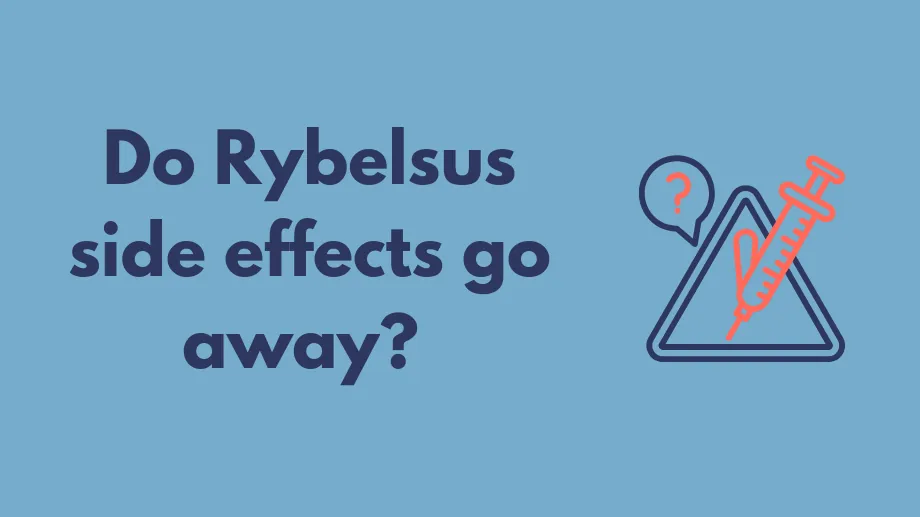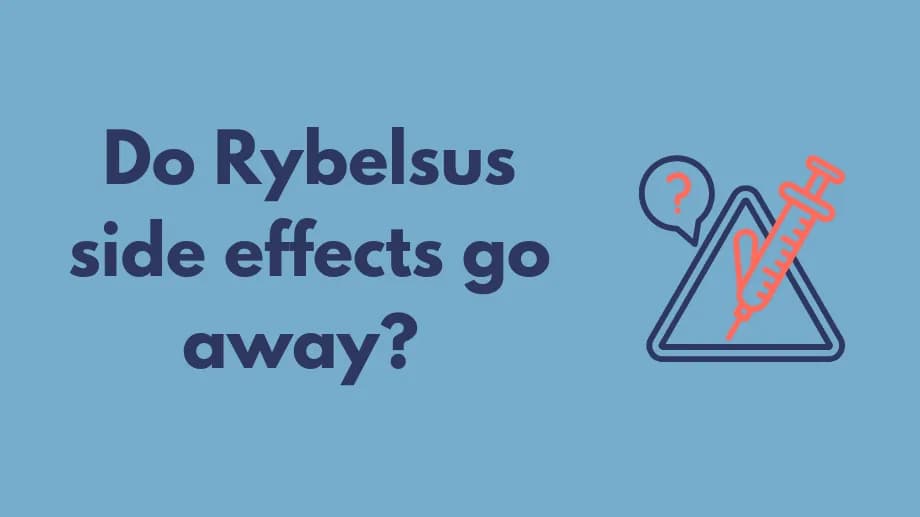Do Rybelsus side effects go away?

Rybelsus (semaglutide) is a brand-name diabetes medication manufactured by Novo Nordisk. It is used along with a low-calorie diet and exercise to lower blood sugar levels in adults with type 2 diabetes (T2DM).
As with all medications, Rybelsus may cause side effects. Most are mild and temporary, lasting a few days to weeks after starting the medication or after a dosage increase. If side effects worsen or persist, contact your healthcare provider.
Common Side Effects
- Nausea
- Vomiting
- Decreased appetite
- Stomach pain
- Diarrhea
- Constipation
- Weight loss
Other possible side effects include indigestion, bloating, gas, and acid reflux.
Severe Side Effects
Rarely, Rybelsus may cause serious reactions. Seek immediate medical attention if you experience:
- Allergic reactions such as hives, swelling of face/tongue/throat, or trouble breathing
- Signs of thyroid tumors (medullary thyroid carcinoma or MEN 2):
- Lump or swelling in the neck
- Hoarseness
- Shortness of breath
- Difficulty swallowing
- Pancreatitis (severe upper stomach pain radiating to the back, nausea, vomiting, rapid heartbeat)
- Worsening diabetic retinopathy (vision changes)
- Low blood sugar (hypoglycemia) symptoms:
- Sweating
- Blurred vision
- Dizziness
- Anxiety or irritability
- Hunger
- Confusion
- Fast heartbeat
- Kidney problems (thirst, decreased urination, dry skin)
- Gallbladder issues (fever, upper stomach pain, clay-colored stool)
These lists are not exhaustive. Always seek medical advice for any concerns, and report adverse effects to the FDA at 1-800-FDA-1088 or www.fda.gov/medwatch.
Rybelsus FAQs
What Does Rybelsus Treat?
Rybelsus is FDA-approved, along with diet and exercise, to control high blood sugar in adults with T2DM. It is also used off-label for weight loss. It is not approved for type 1 diabetes (T1DM).
How Does Rybelsus Work?
The active ingredient, semaglutide, is a GLP-1 receptor agonist. It mimics the hormone GLP-1 to increase insulin release, suppress glucagon secretion, and slow digestion, helping lower blood sugar and reduce appetite.
Is There a Boxed Warning?
The FDA warns of a potential risk of certain thyroid tumors (medullary thyroid carcinoma) based on animal studies. Rybelsus should not be used by those with a personal or family history of these tumors or MEN 2.
What Warnings and Precautions Apply?
Before starting Rybelsus, inform your provider if you have:
- Kidney disease
- History of pancreatitis
- Diabetic retinopathy or vision problems
- Thyroid disorders or are taking thyroid medications
- Pregnancy plans (stop Rybelsus at least 2 months before conception)
- Breastfeeding plans
Are There Drug Interactions?
Rybelsus can affect the absorption and action of other drugs. Tell your provider about all prescription medications, OTC drugs, vitamins, and supplements, especially insulin, sulfonylureas, metformin, and any medication impacted by slowed gastric emptying.
How Is Rybelsus Taken?
Take Rybelsus exactly as prescribed: on an empty stomach upon waking with up to 4 oz of water. Wait at least 30 minutes before eating, drinking anything else, or taking other oral medications. Swallow tablets whole. If you miss a dose, skip it and resume your regular schedule.
How Long to Adjust?
Most side effects occur early or after a dose increase and usually subside within days to weeks. If they persist beyond two weeks, contact your healthcare provider.
Can Rybelsus Cause Fatigue?
Fatigue is not directly reported but may result from nausea, vomiting, or reduced calorie intake. If you experience persistent tiredness, discuss it with your provider.
Is Overdose Possible?
In case of overdose, seek emergency help or call Poison Help at 1-800-222-1222. Overdose symptoms may include severe nausea, vomiting, or hypoglycemia. Observation and treatment may be necessary due to Rybelsus’s long half-life.
Related Medications
- Wegovy (semaglutide)
- Ozempic (semaglutide)
- Mounjaro (tirzepatide)
- Saxenda (liraglutide)
- Victoza (liraglutide)
- Trulicity (dulaglutide)
